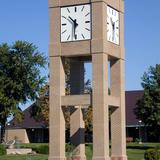- Southeastern Illinois College, as a comprehensive community college and a member of the Illinois Community College System of Higher Education, is committed to a philosophy that believes in the dignity and worth of each individual regardless of race, creed, gender, physical abilities, national or ethnic origin. As its mission, Southeastern strives to become the educational and cultural center of the community by providing for the development of intellectual, social, personal and productive skills to all persons who reside within Community College District #533.
School Highlights
Southeastern Illinois College serves 3,099 students (17% of students are full-time).
The college's student:teacher ratio of 27:1 is higher than the state community college average of 21:1.
Minority enrollment is 15% of the student body (majority Black and Hispanic), which is less than the state average of 53%.
Quick Stats (2025)
- Enrollment: 3,099 students
- In-state tuition: $4,530
- Out-state tuition: $4,770
- Student:teacher ratio: 27:1
- Minority enrollment: 15%
- Source: Integrated Postsecondary Education Data System (IPEDS)
Top Rankings
Southeastern Illinois College ranks among the top 20% of public schools in Illinois for:
Category
Attribute
Affordability
School Overview
The teacher population of 113 teachers has stayed relatively flat over five years.
Southeastern Illinois College
(IL) Community College Avg.
Carnegie Classification
Associate's Colleges: High Career & Technical-High Nontraditional
Associate's Colleges: Mixed Transfer/Career & Technical-High Nontraditional
Institution Level
At least 2 but less than 4 years
At least 2 but less than 4 years
Institution Control
Public
Public
Total Faculty
113 staff
227 staff
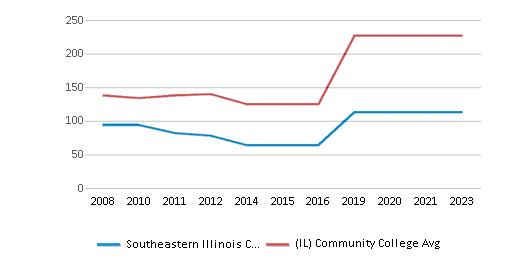
School Calendar
Student Body
The student population of Southeastern Illinois College has grown by 78% over five years.
The student:teacher ratio of 27:1 has increased from 11:1 over five years.
The Southeastern Illinois College diversity score of 0.28 is less than the state average of 0.69. The school's diversity has grown by 26% over five years.
Total Enrollment
3,099 students
3,270 students
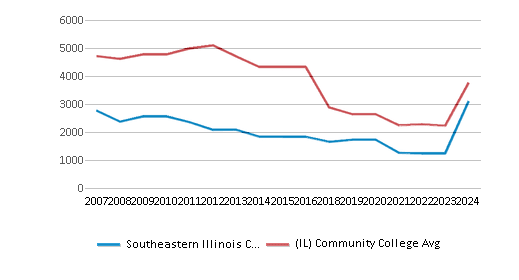
Student : Teacher Ratio
27:1
21:1
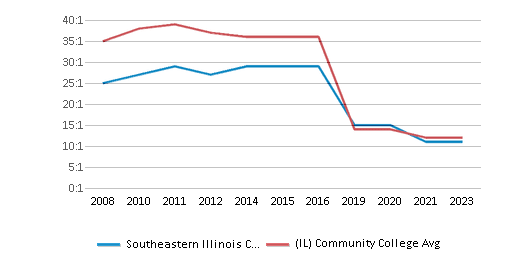
# Full-Time Students
536 students
1,007 students
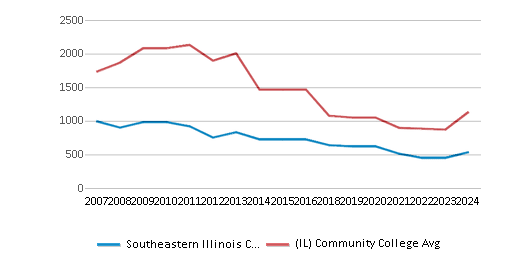
# Part-Time Students
2,563 students
2,747 students
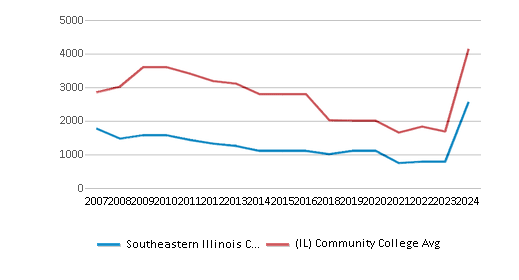
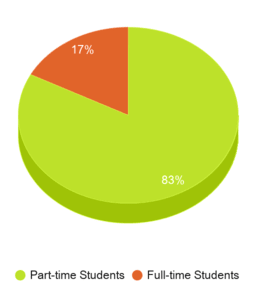
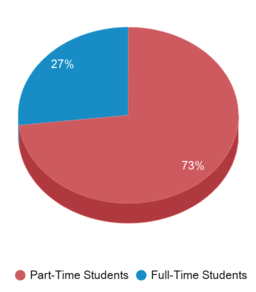
# Enrollment Undergraduate
309 students
328 students
# Full-Time Undergraduate Students
536 students
1,007 students
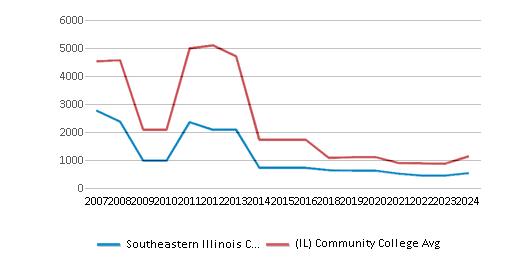
# Full-Time Graduate Students
n/a
43 students
# Part-Time Undergraduate Students
2,563 students
3,310 students
# Part-Time Graduate Students
n/a
18 students
Total Dormitory Capacity
n/a
132 students
% American Indian/Alaskan
n/a
n/a
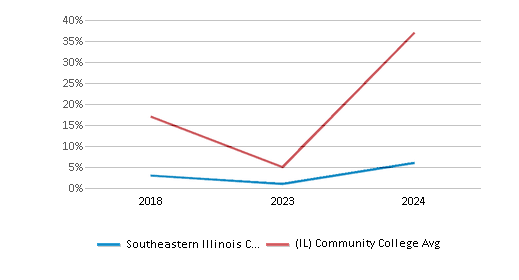
% Asian
n/a
6%
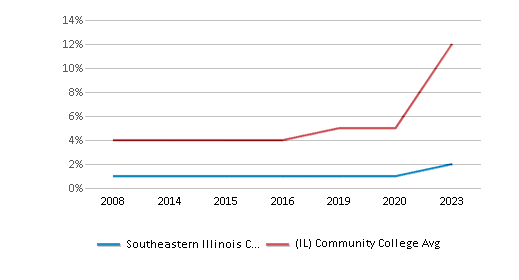
% Hispanic
2%
26%
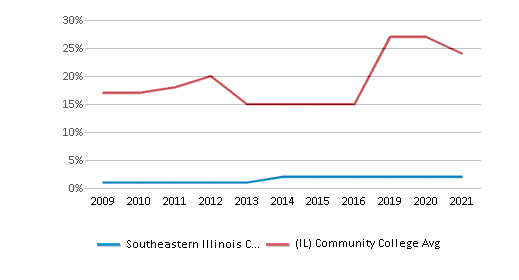
% Black
2%
13%
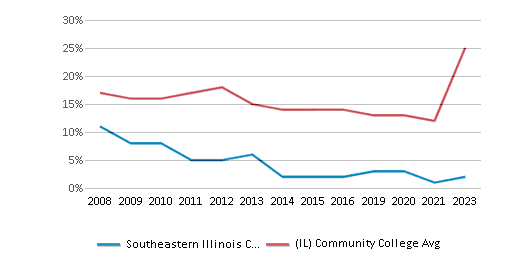
% White
85%
47%
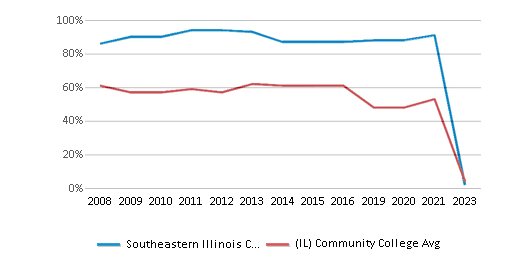
% Hawaiian
n/a
n/a
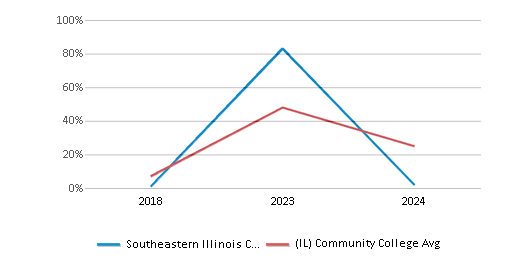
% Two or more races
3%
3%
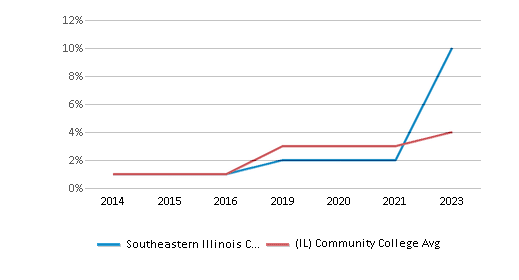
% Non Resident races
n/a
1%
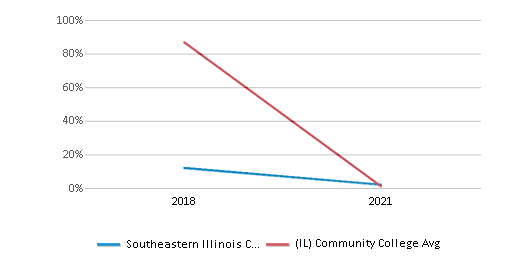
% Unknown races
8%
4%
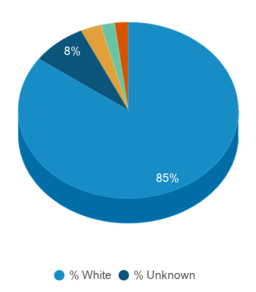
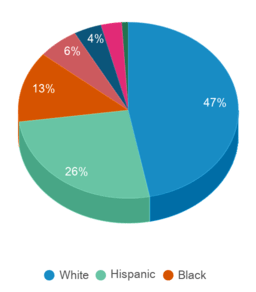
Diversity Score
0.28
0.69
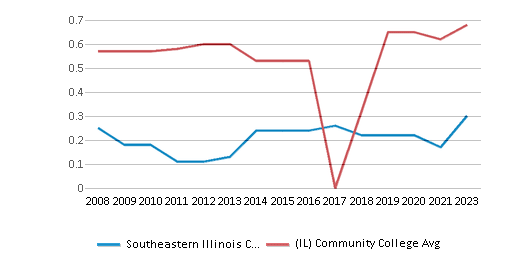
College Completion Rate (Students who graduate in less than 4 years)
0.418%
0.4%
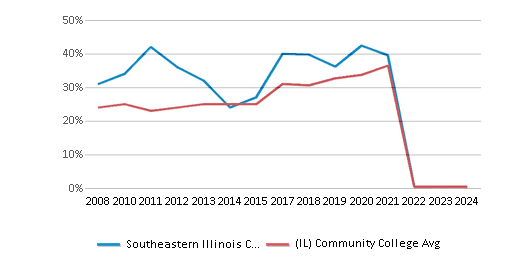
College Completion Rate (Students who graduate in 4 years or more than 4 years)
n/a
0.38%
Average Graduate Earnings (10 Years)
$32,300
$31,800
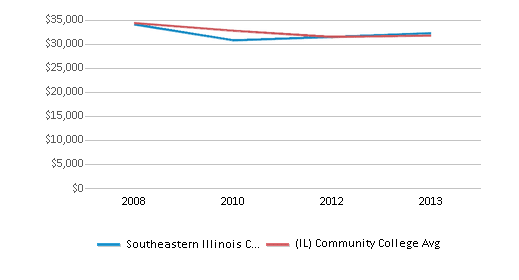
Tuition and Acceptance Rate
The public in-state tuition of $4,530 is less than the state average of $7,875. The in-state tuition has declined by 25% over four years.
The public out-state tuition of $4,770 is less than the state average of $10,847. The out-state tuition has declined by 24% over four years.
In-State Tuition Fees
$4,530
$7,875
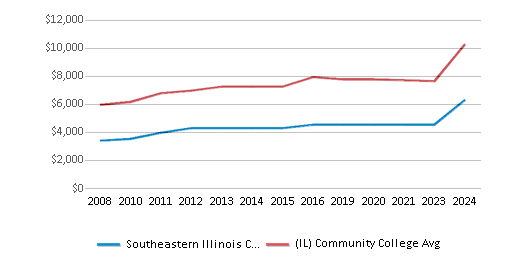
Out-State Tuition Fees
$4,770
$10,847
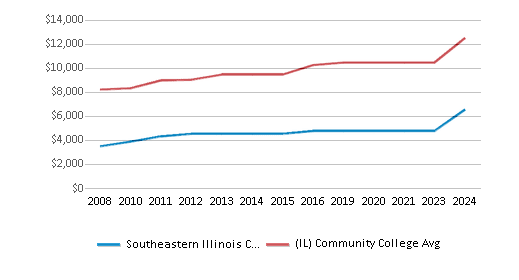
% Students Receiving Some Financial Aid
75%
82%
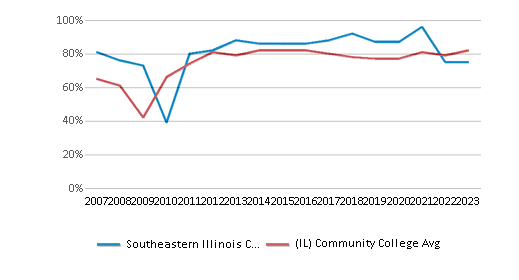
Median Debt for Graduates
n/a
$8,187
Median Debt for Dropouts
n/a
$4,618
Acceptance Rate
n/a
89%
SAT Reading
n/a
390
SAT Math
n/a
360
SAT Writing
n/a
355
ACT Composite
n/a
17
ACT English
n/a
17
ACT Math
n/a
17
Source: 2024 (or latest year available) Integrated Postsecondary Education Data System (IPEDS) , School Administrators
School Notes
- Founded in 1960, the college has a 172-acre campus located at 3575 College Road, Harrisburg, Illinois. It serves the residents of Gallatin, Hardin, Pope and Saline Counties; portions of Hamilton, Johnson, Williamson and White Counties. Courses offered are: Arts and Science Associate Degree Programs, Associate in Applied Science Degree Programs, Associate in Engineering Science Degree, Associate in Liberal Studies Degree, Occupational Certificate Programs, (SIC operates educational programs at the White County Center, Vienna Correctional Center, Shawnee Correctional Center, Illinois Youth Center at Harrisburg, Hardin County Work Camp, and Dixon Springs Work Camp.) Southeastern Illinois College offers quality programs at one of the most affordable tuition rates in the region. We offer convenient courses - day, evening, on-line - to meet your busy schedule. Whether you take a single course or join us as a full-time student, your success starts at Southeastern. THe college is accreditated by the: Commission on Institutions of Higher Education of The North Central Association of Colleges and Schools.
Frequently Asked Questions
How much does Southeastern Illinois College cost?
Southeastern Illinois College's tuition is approximately $4,530 for In-State students and $4,770 for Out-State students.
What is Southeastern Illinois College's ranking?
Southeastern Illinois College ranks among the top 20% of community college in Illinois for: Least expensive tuition.
Recent Articles

Obtaining Your Bachelor's Degree at a Community College
Explore the evolving landscape of community colleges offering bachelor's degrees, addressing affordability, accessibility, and workforce needs.

A to Z of Community College Certificates and Courses
From business and healthcare to technology and skilled trades, the article showcases the breadth of options available to students seeking to enhance their knowledge, develop new skills, or pursue career advancement.

What is a Community College?
This comprehensive guide explains what a community college is, its history, and its role in higher education. It covers the types of programs offered, differences from four-year colleges, benefits of attending, and important considerations for prospective students, providing valuable insights for those exploring educational options.

